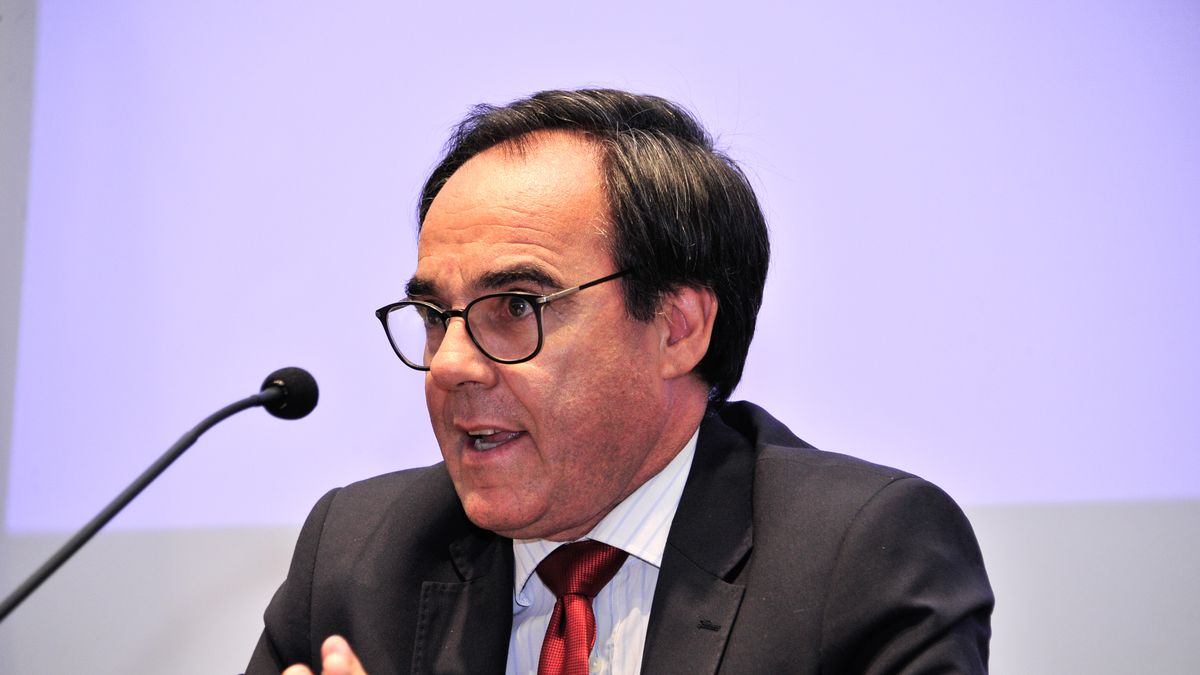The minister of Environment, Robert Bouvier, defended the Arazati Project —which consists of the construction of a new water treatment plant in Saint Joseph- before him Parliament, In an inquiry called by the broad front a week after the initiative was awarded to the Montevideo Water Consortium. For the hierarch, the private concession “is the only way we have to do this work according to the economic restrictions” in the state water company of Uruguay.
Bouvier should have responded 88 questions carried out by the Frente Amplista deputy Philip Carballo in the interpellation that lasted for 16 hours and ended at 3 in the morning. There, the minister began with a speech already heard on other occasions, which highlighted the importance of Arazati Project -also know as Neptune- while “it comes to solve one of the main problems we have as a country” which, in his opinion, is depending on a single source of supply, the river holy Lucy.
He also provided information on the contract to be signed with the consortium made up of private companies Saceem, Berkes, Ciemsa and Fast; and explained that one of the reasons why the contract could be terminated early is that the contractor “puts human life or the environment at risk.”
He also stated that one of the responsibilities that private companies will have will be to ensure that the infrastructure has “the capacity to produce and transport 200,000 cubic meters of drinking water to the Melilla recharge with a salinity level of less than 450 milligrams per liter.” And that the levels that exceed this threshold will not be able to persist for more than 71 days in a row —this, based on the fact that the record of extended salinity events is expected as long as the water intake will be of the Silver river.
Questions from the Broad Front
Among the 88 questions that the Frente Amplio deputy in charge of the interpellation, Carballo, asked him, one of the ones that stood out was the one that pointed to the possibility of “opening a wide space for technical and political dialogue” to analyze and resolve “as a country project and State policy the investment” that supposes the Arazati Project; even if this means stopping the process started with the award of the tender.
Given this, Bouvier maintained that “this is a exchange stage, but it does not seem convenient to stop this process, since we are going at a convenient pace”. In this regard, he pointed out that, although the worst is over, the drought and the water crisis that mostly affected the metropolitan area, “the country is requiring an immediate solution regarding these measures that we are going to take, and we plan to continue advancing to be able to arrive in a prudent time to have the solution that we are waiting for so much”.
On the other hand, Carballo asked the Minister of the Environment about the chosen financing and management model, which involved awarding it to a private consortium instead of it being the National Administration of State Sanitary Works (OSE) the one that carried out the project —something that, according to the Broad Front, implies a $300 million cost overrun.
In this regard, the minister of the ranks of the Colorado party explained that the decision taken by the government “It is the only way we have to do this work according to economic restrictions”. “At the same time, this model is not something new, it began to be used in the previous government”, counterattacked.
Additionally, the undersecretary of the environmental portfolio, Gerardo Amarilla, stated that “it has complied with what is established by the Constitution in reference to citizen participation, transparency and public information”.
Source: Ambito




